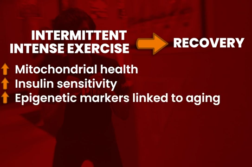LEESBURG, Fla. (Ivanhoe Newswire) — Being a teenager is hard enough. Now the COVID-19 crisis is making it even more challenging for some. From fear of the unknown to loneliness caused by isolation, your teen is probably dealing with some big emotions. Teens and anxiety
Teens went from enjoying school, hobbies, and friends to spending all their time cooped up at home and many parents are realizing the coronavirus may be fueling anxiety.
Oksana Hagerty, PhD, assistant director of the center for student success and psychologist at Beacon College said, “We have to spend more time with our children than we ever did before and we discover that maybe, maybe we don’t know them as well as we thought we did.”
Some signs: constant fear or worry, physical problems like chronic headaches or stomachaches, a change in your child’s personality, such as irritability, difficulty sleeping, panic attacks, or withdrawing from activities.
“Like oh, maybe I shouldn’t go to college or maybe I shouldn’t pursue that major or maybe I should change something, maybe I should downsize. These are the signs of withdrawing”, Hagerty told Ivanhoe.
So how can you help? First recognize that their lives are turned upside down and anxiety is normal. Let them work through their feelings. Make sure they’re getting enough exercise and sleep. And help them find creative ways to connect with their friends like Facetime or Zoom. Talk about their concerns a lot and offer positive feedback.
“So, catch them being good, spend more time with your child, be more attentive to your child, and build on his or her strengths”, Hagerty said.
According to the National Institute of Mental Health, about 25 percent of 13 to 18-year old’s have an anxiety disorder.
Contributors to this news report include: Cyndy McGrath, Executive Producer; Julie Marks, Field Producer; Roque Correa, Editor.
To receive a free weekly e-mail on Medical Breakthroughs from Ivanhoe, sign up at: http://www.ivanhoe.com/ftk
MEDICAL BREAKTHROUGHS
RESEARCH SUMMARY
TOPIC: TEENS AND ANXIETY DURING COVID-19
REPORT: MB #4731
BACKGROUND: The Novel Coronavirus of 2019 and its quarantines, Safer at Home laws, and social distancing guidelines, have affected everyone’s mental health in some form or another. Isolation typically increases our fear and worry, changes our sleeping and eating patterns, worsens chronic health problems, creates difficulties sleeping and concentrating, and increases the use of drugs and alcohol. Many parents are worried about kids and teens developing depression or anxiety and are on the lookout for dramatic changes in mood, school performance, irritability, eating and sleeping habits.
(Source: See Bottom)
FORCED SOCIALIZATION: Many parents and teens or college students find themselves interacting more than usual, and that comes a new set of challenges for maintaining proper mental health. Parents and kids must work to adjust to each other’s routines and find a new balance. Just like with young children, how a parent acts and reacts to external stressors informs their children of how they should react. Parents must be active in their quest to not bring depression and anxiety into the household and project strength and confidence for their children. Experts say there is an inevitable spike in depression coming for teens and young adults that are home from school and creating a safe home environment is crucial to combat it.
(Source: Dr. Oksana Hagerty, PhD, Psychologist, Beacon College)
REMEDIES: The CDC has recommendations for how to protect you and your loved ones’ mental health during this specific COVID-19 isolation. Take a break from the news. This includes social media and reading news stories. While information is important and necessary, too much of it can be overly upsetting and put a strain on your brain. Take care of your body whenever you can, walk, stretch, eat healthy meals, take deep breaths, get enough sleep, drink enough water and so on. Take time for yourself to unwind or find a new hobby, if you are working or learning from home it is important to set aside time to do something you enjoy. Talk to other people and express your feelings and worries to those you trust. Social isolation doesn’t mean we need to feel alone or disconnected.
FOR MORE INFORMATION ON THIS REPORT, PLEASE CONTACT:
DARRYL E. OWEN
(352) 638-9789
If this story or any other Ivanhoe story has impacted your life or prompted you or someone you know to seek or change treatments, please let us know by contacting Marjorie Bekaert Thomas at mthomas@ivanhoe.com




